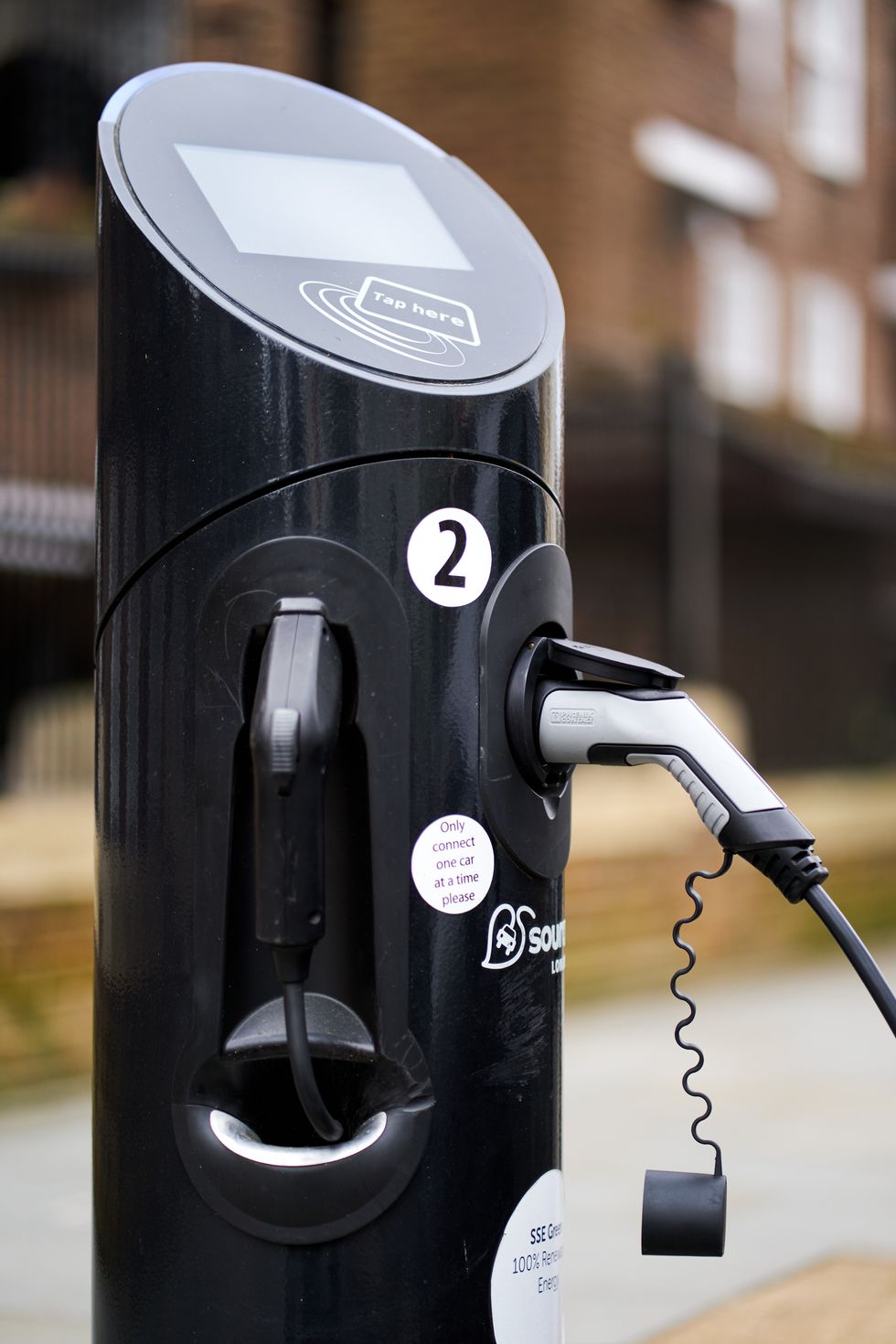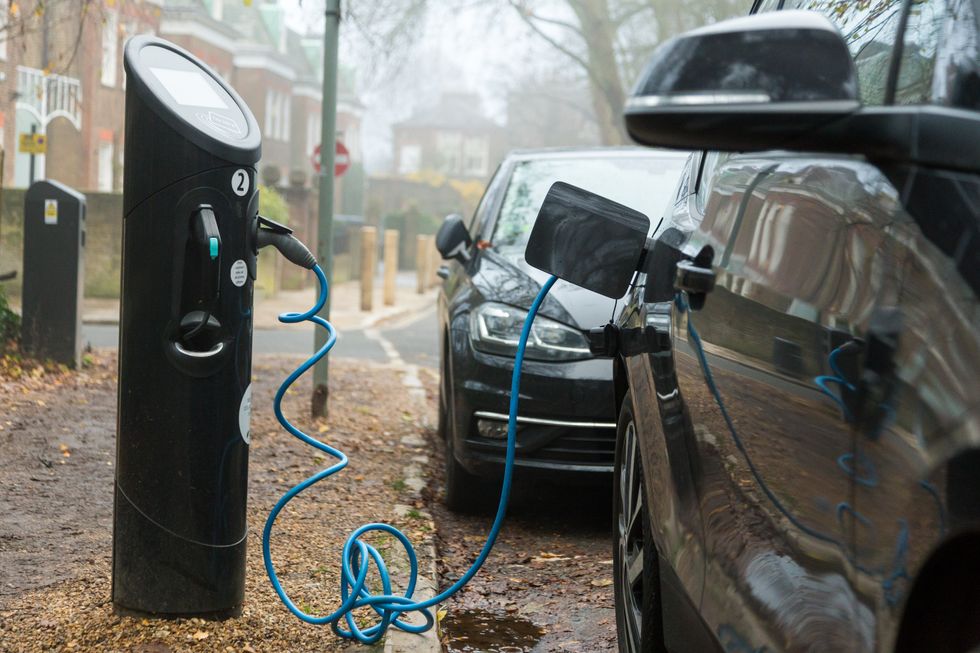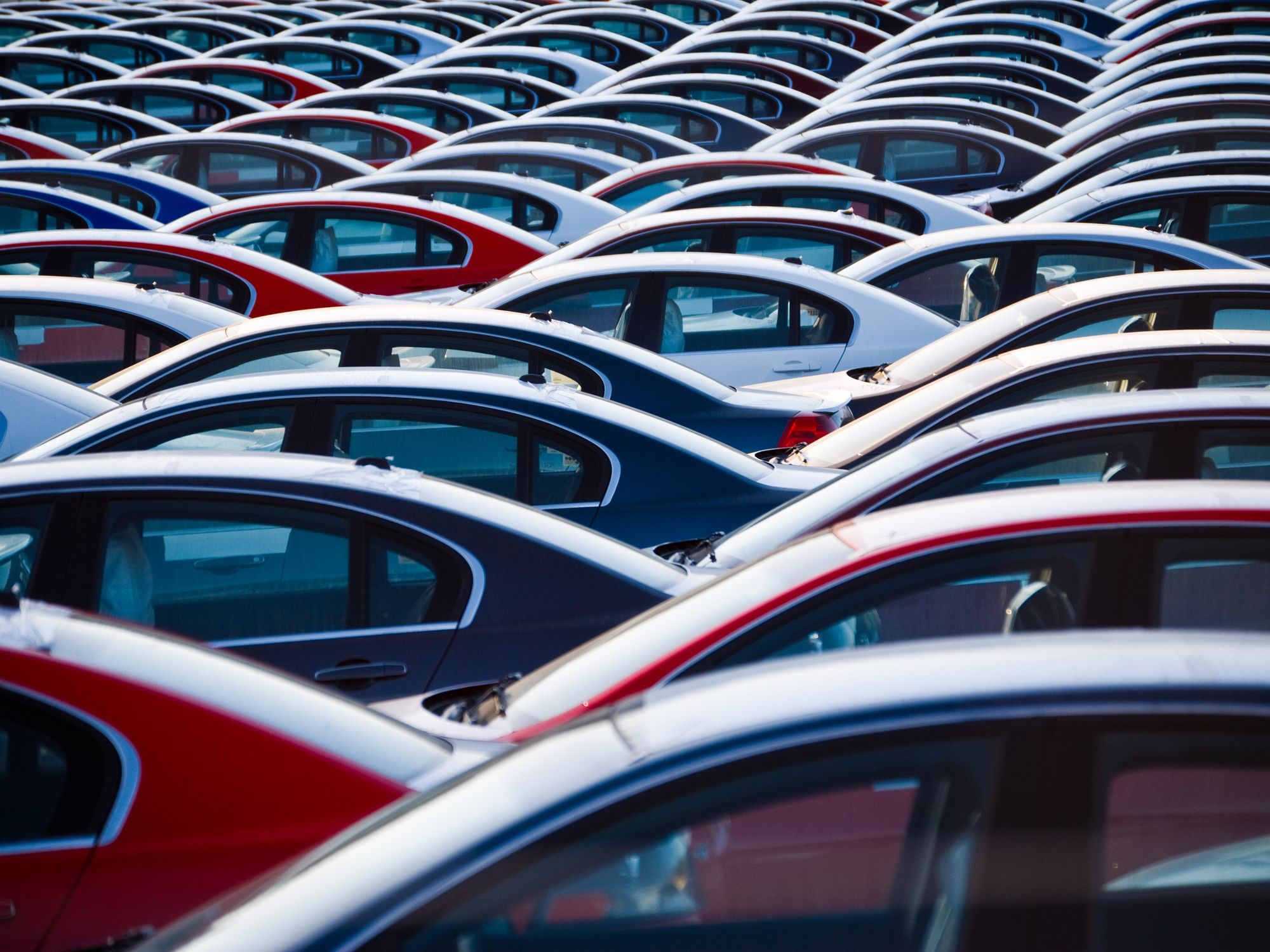Louise Haigh addressed electric vehicle charging costs
REUTERS/PA
Drivers face 10 times higher charging costs and public points than at home
Don't Miss
Most Read
Trending on GB News
Labour has revealed it will work to address the pricing gap which has slowed down the uptake of electric vehicles as drivers continue to face 10 times higher public charging costs than at home.
The stark disparity in charging costs has emerged as a significant barrier to the wider adoption of electric vehicles across the UK with many drivers refusing to switch away from petrol and diesel models.
Motorists who use the public charging network have been forced to bear the brunt of substantially higher rates, with many drivers being left out of pocket due to lack of home charging options in their area.
The issue has caught the attention of the Department for Transport as concerns grow about the fairness of EV charging costs across different segments of society.
Do you have a story you'd like to share? Get in touch by emailingmotoring@gbnews.uk

High charging costs has caused drivers to be hesitant to switch to an EV
PAAs a result of the concerns raised by drivers, Transport Secretary Louise Haigh addressed the pricing crisis during a recent Transport Committee meeting.
She told MPs: "We are looking at ways to provide more transparency across pricing and oversee the massive differentials. The access to charging is obviously one of the biggest barriers, at least in perception, if not in reality, for people making the transition to electric vehicles.”
The comments signal a growing recognition within Government of the need to address charging inequalities. Labour's focus on the issue comes as the party seeks solutions to make EV adoption more equitable.
The pricing inequality particularly affects urban residents and those without private driveways, with drivers warned about the subsequent creation of a "two-tier system" in the UK's transition to electric vehicles.
According to recent Zapmap data, public charging costs in October 2024 reached 56p per kWh for slow and fast chargers.The rate climbs even higher for rapid and ultra-rapid chargers, hitting 80p per kWh.
In stark contrast, drivers with off-street parking can charge their vehicles at home for as little as 7.5p per kWh. Home charging also allows drivers to avoid the additional 20 per cent VAT payment required for public charging points.
These figures highlight the substantial cost advantage enjoyed by those able to charge their vehicles at home.
The price differential represents one of the most significant barriers to EV adoption, particularly affecting those reliant on public charging infrastructure. The pricing disparity also dubbed a “pavement tax”, affects four in 10 British households without dedicated off-street parking.
The issue extends beyond individual motorists, creating significant challenges for the electrification of car and van fleets across the country.Without access to home charging facilities, asubstantialportion of potential EV adopters face significantly higher running costs.
The disparity particularly impacts urban residents who rely solely on public charging infrastructure. This pricing gap has raised concerns about the accessibility and fairness of EV adoption, potentially slowing the transition to electric vehicles.
The issue disproportionately affects those in properties without private parking facilities, creating an additional financial burden for these households.
The UK has reached a significant milestone with over 70,000 publicly available EV charging devices now installed across the country. However, regional inequalities persist in the distribution of charging infrastructure.
LATEST DEVELOPMENTS:
 On-street chargers have been deployed by local councils across the UK GETTY
On-street chargers have been deployed by local councils across the UK GETTYLondon has secured a significantly higher concentration of charging points compared to other regions. To address this imbalance, the Government is advancing the Local EV Infrastructure fund initiative. This programme will support local Governments in developing public charging infrastructure across the country.
The Department for Transport has also indicated that a response to its recent consultation is imminent. The consultation which launched earlier this year, specifically targeted improvements in charging accessibility for EV drivers without off-road parking.








